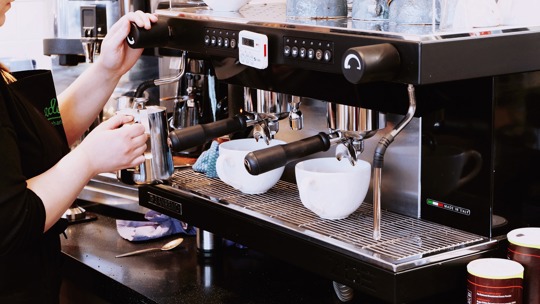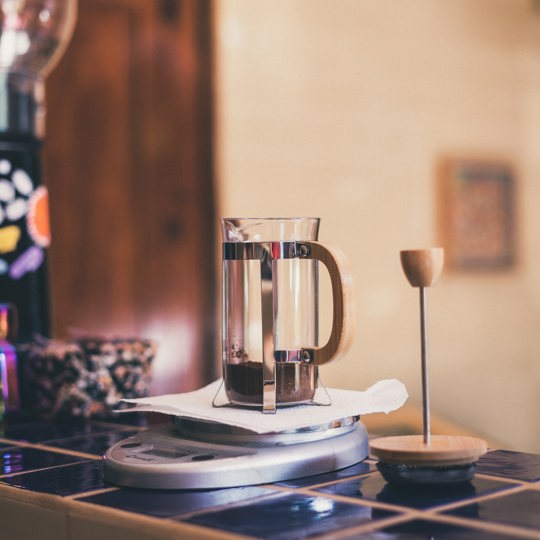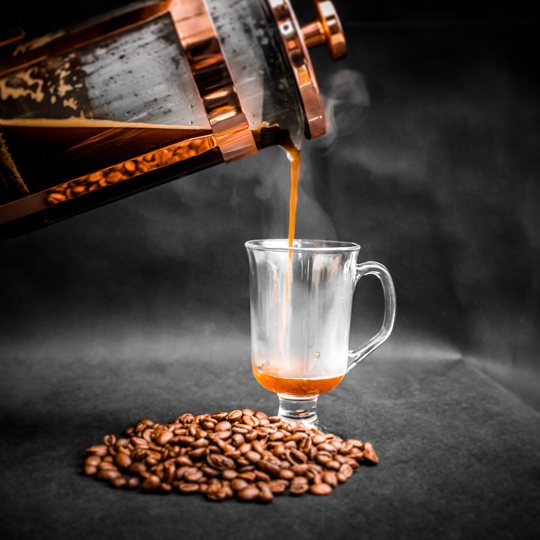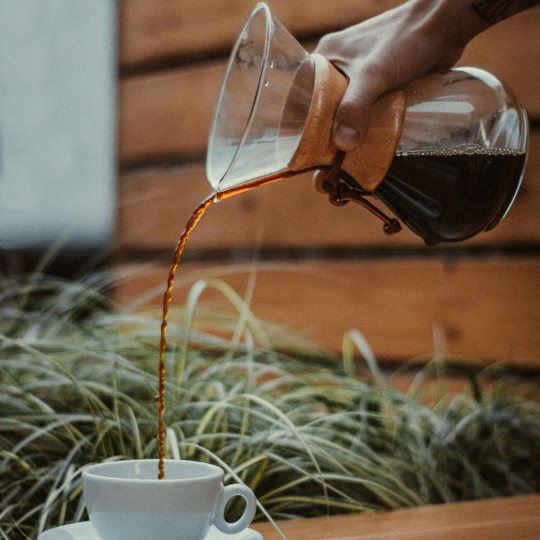
The benefits of coffee machines for hotels
Read about the benefits of coffee machines for hotels
DiscoverUnderstanding the lifespan of coffee beans is essential for anyone who appreciates a perfect cup of coffee. Whether you're brewing at home, managing your coffee shop, or simply passionate about the art of exceptional coffee, fresh coffee beans play a significant role in delivering the delicious flavour and aroma we expect from good coffee.
However, when learning more about the perfect brewing method, it’s important to consider how long can coffee beans last. And why is this so critical to the flavour?
Unroasted beans, vacuum-sealed and air-tight can last up to a year. However, roasted beans tend to deteriorate after around a week or so. This can be extended to around a month if stored properly.

Freshly roasted coffee beans are bursting with volatile compounds that contribute to their unique taste and fragrance. Over time, however, exposure to oxygen, moisture, light, and heat causes these compounds to degrade. This deterioration leads to a loss of flavour complexity and aromatic richness, resulting in a cup of coffee that fails to meet its full potential.
Knowing how long coffee beans last allows you to maintain the highest standards in your coffee experience, ensuring optimal flavour preservation by using beans within their prime window of freshness, delivering a cup that is rich, aromatic, and full-bodied.

When it comes to the taste of your coffee, several key factors significantly influence the final flavour profile. Understanding these elements and learning how to best preserve your coffee beans can help you optimise your coffee experience, ensuring every cup is perfectly flavourful and aromatic.
Below are some factors to consider that affect the freshness of your beans:

The type of coffee beans you choose - whether whole beans, ground coffee, or instant coffee - dramatically impacts the flavour and aroma of your brew. Whole coffee beans retain their freshness and flavour integrity longer than ground coffee or instant coffee. This is because whole beans have less surface area exposed to oxygen, which can degrade the beans over time.
When you grind coffee beans, you accelerate the oxidation process, leading to a quicker loss of flavour and aroma. Instant coffee, while convenient, undergoes extensive processing that alters its taste profile compared to fresh coffee brewed from whole or ground beans. For the most vibrant and flavorful cup, opting for whole beans and grinding them just before brewing is ideal.
The roast date of coffee beans is crucial for ensuring freshness and optimal flavour. Unlike a "best by" date, which often indicates a broad timeline for when the coffee is expected to be at its peak, the roast date specifies when the beans were roasted.
Freshly roasted coffee beans are at their peak flavour within a few weeks of roasting, during which they release essential compounds that contribute to their rich aroma and complex taste. As time passes, these flavours diminish. Therefore, prioritising coffee beans with a recent roast date ensures you experience your coffee at its finest.
Proper storage is essential to preserving the freshness and flavour of coffee beans. The enemies of coffee bean freshness include light, air, moisture, and temperature fluctuations. Exposure to light can accelerate the degradation of coffee oils and flavours. Air exposure leads to oxidation, causing the beans to stale more quickly. Moisture can lead to mould growth and spoilage, while fluctuating temperatures can accelerate the ageing process of coffee beans.
To best store your coffee beans, keep them in an opaque, air-tight container at room temperature. Ceramic or stainless steel works best to protect them from light. Keep the container in a cool, dark place, away from heat sources like stoves or sunlight. Avoid storing coffee beans in the fridge or freezer unless vacuum-sealed, as condensation can form upon removal, potentially affecting the beans' flavour.
The shelf life of coffee varies depending on its form and how it's stored. Understanding these durations can help you maintain the freshness and quality of your coffee for the best possible brewing experience.
Whole coffee beans are at their peak freshness within 2 to 4 weeks after roasting. During this period, they release aromatic oils and volatile compounds that contribute to their rich flavour profile. To extend their shelf life beyond this optimal period, store whole beans in an airtight container in a cool, dark place. In the pantry, whole beans can generally be stored for up to 3 months without significant loss of quality. For longer storage, freezing whole beans in airtight packaging can preserve freshness for up to 6 months, although it's important to thaw them completely before use to prevent condensation.
Ground coffee has a shorter shelf life compared to whole beans due to increased surface area exposure to air, which accelerates oxidation. For optimal freshness, ground coffee is best used within 1 to 2 weeks after grinding. Like whole beans, store ground coffee in an airtight container in a cool, dark place to prolong its freshness. In the pantry, ground coffee can generally be stored for up to 3 months. Freezing ground coffee can extend its shelf life to about 6 months, with the same caution about thawing before use to prevent moisture damage.
Instant coffee has the longest shelf life among coffee types due to its processing method, which involves freeze-drying or spray-drying brewed coffee. Properly stored in a cool, dry place away from light and moisture, instant coffee can maintain its quality for up to 2 years. This makes it a convenient option for long-term storage without compromising flavour.
Unroasted green coffee beans have the longest shelf life of all coffee types. When stored in a cool, dark place with minimal exposure to air and moisture, green coffee beans can retain their quality for up to 1 year. This extended shelf life allows for flexibility in purchasing and roasting at home, preserving the potential for diverse flavour profiles depending on roasting techniques.
By understanding the shelf life of different types of coffee and employing proper storage practices, you can ensure that each cup of coffee you prepare delivers optimal flavour, whether you prefer the freshness of whole beans, the convenience of ground coffee, the longevity of instant coffee, or the artisanal approach of roasting green beans at home.
To preserve the freshness and flavour of your coffee beans, proper storage is essential. Follow these best practices to ensure your coffee beans remain at their peak for the best flavour coffee.
Store coffee beans in airtight containers made of opaque materials, such as ceramic, stainless steel, or airtight glass jars. Opaque containers help prevent light from degrading the coffee beans' oils and flavours, which can occur with exposure to sunlight or bright indoor lighting. Airtight seals minimise exposure to air, reducing oxidation and helping to maintain freshness.
Choose a storage location that is cool, dark, and dry. Avoid storing coffee beans near heat sources like stoves or in areas exposed to direct sunlight, as heat can accelerate the degradation of coffee oils and flavours. A pantry or cupboard in a consistently cool room is an excellent choice for storing coffee beans. Ensure the storage area is dry to prevent moisture from affecting the beans' quality.
If you need to extend the shelf life of your coffee beans beyond a few weeks, freezing can be an effective method when done correctly:
Use freezer-safe containers: Transfer coffee beans to freezer-safe bags or containers. Ensure they are airtight to prevent exposure to moisture and odours from other foods in the freezer.
Remove air before freezing: Squeeze out as much air as possible from the freezer bags or containers before sealing. Oxygen exposure can accelerate the staling process even in the freezer.
Thawing and using frozen beans: When ready to use frozen coffee beans, allow them to thaw completely inside the sealed container to prevent condensation on the beans. Use them promptly after thawing to minimize exposure to moisture and maintain flavour.
By following these storage practices, you’ll never have to trouble yourself again by asking how long your coffee beans can last. By following the above guidance, you can prolong the freshness and flavour of your coffee beans, ensuring every cup is as delicious as the last.
Freshly roasted coffee beans contain a complex mix of volatile compounds that contribute to their distinctive flavour and aroma. When brewed soon after roasting, these flavours are vibrant, nuanced, and full-bodied. As coffee beans age, these volatile compounds diminish, resulting in a loss of complexity and aroma. Brewing with fresh beans ensures that you experience coffee at its peak - rich, aromatic, and satisfying.
Using fresh coffee beans promotes consistency in your brewing process. Fresh beans maintain their optimal moisture content and density, leading to a consistent grind size and extraction rate. This consistency is crucial for achieving a balanced cup of coffee with well-extracted flavours. Conversely, stale beans can vary in grind size and extraction, resulting in uneven flavours and textures in your brewed coffee.
Coffee contains a variety of beneficial compounds, including antioxidants and active substances which are known to have positive effects on health. Drinking coffee has been linked to a lower likelihood of type 2 diabetes, heart disease, liver and endometrial cancers.
Freshly roasted coffee beans retain more of these compounds compared to older beans. Antioxidants, for example, degrade over time, so consuming fresher coffee beans allows you to maximise the potential health benefits. Additionally, fresh coffee tends to have a smoother taste and a richer aroma, enhancing the overall enjoyment of your coffee experience.
By prioritising the freshness of your coffee beans—whether whole beans, ground coffee, or instant—you can elevate your brewing routine and begin to get the most out of your beans. Enjoying coffee brewed from fresh beans not only enhances flavour and aroma but also ensures consistency in every cup, maximising the health benefits associated with coffee consumption.